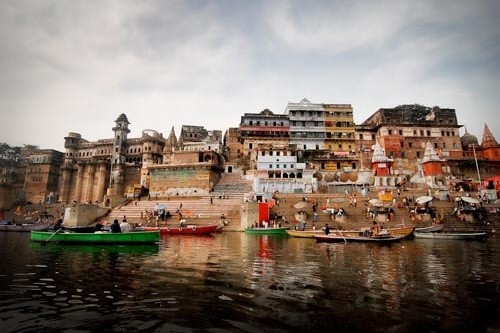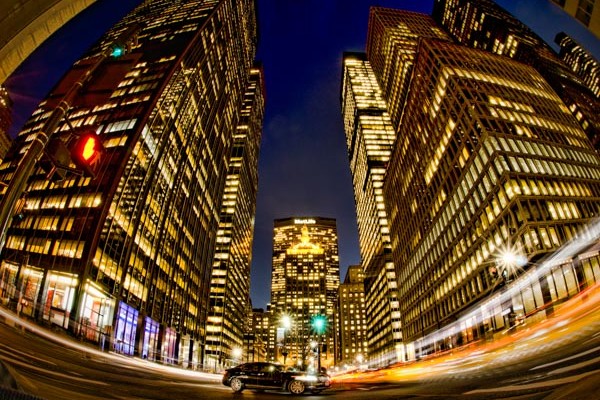Wiang Kum Kam is the stuff legends are made of.
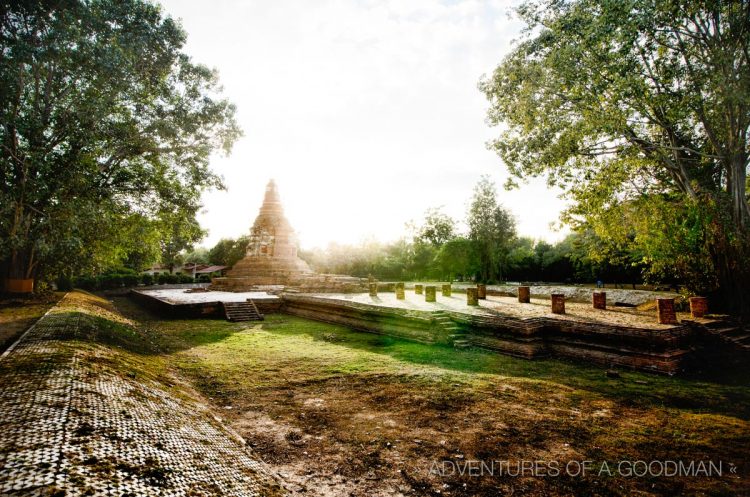
In the past 400 years, Wiang Kum Kam was capital of the Lanna Kingdom, covered by mud and flood water, abandoned and left to the sands of time.
Today, you can explore its partially reconstructed temples, courtyards, homes, and brick remains; a mere 10 minutes from downtown Chiang Mai, Thailand.
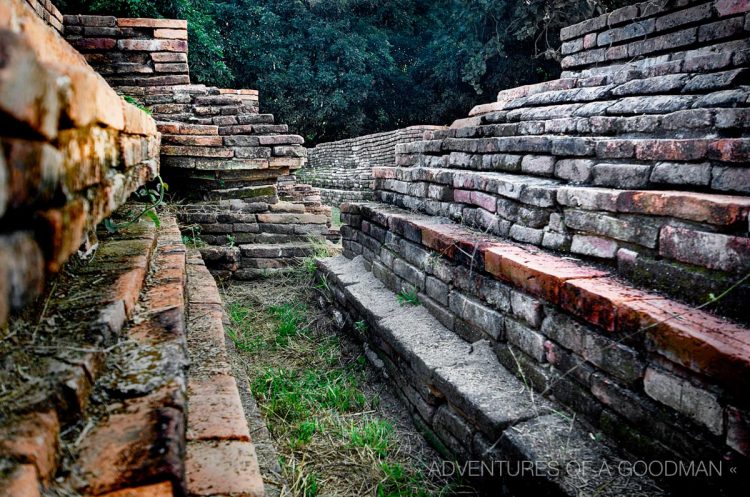
Before Chiang Mai, there was Wiang Kum Kam
While some tours advertise Wiang Kum Kam as “the original Chiang Mai,” a more accurate description would be “the reason King Mengrai built Chiang Mai.”
Wiang Kum Kam was a thriving settlement long before King Mengrai declared it to be the new capital of the Lanna Kingdom in 1291. With fertile land, flourishing rice fields, a proximity to the Ping River, and a strategic position for trade with the southern countries, it seemed the obvious choice.
What the King didn’t realize was how heavy rain and the town’s low-lying topography would cause it to regularly flood. Not the type of trait you want in a capital.
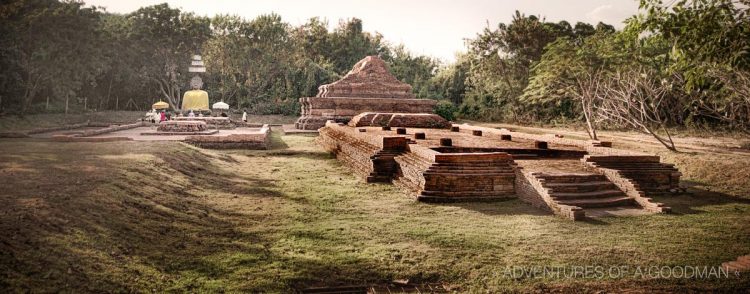
How Wiang Kum Kam Became a Lanna Legend
Wiang Kum Kam’s reign as the heart of the Lanna Kingdom only lasted for six years.
By April, 1296, King Mengrai had constructed a new capital on the opposite bank of the Ping River, which he named Chiang Mai. Translating to “new city,” Chiang Mai was built on higher ground and used a large pond to receive the excess of flood water.
For the next 250 years, these two cities coexisted peacefully under Lanna and Burmese reigns. Then, at some point between 1558-1594, the Ping River changed directions and Wiang Kum Kam was buried under a rooftop of mud and sludge.
Over the centuries, the town’s existence became something of a Lanna legend, and many questioned if it ever actually existed.
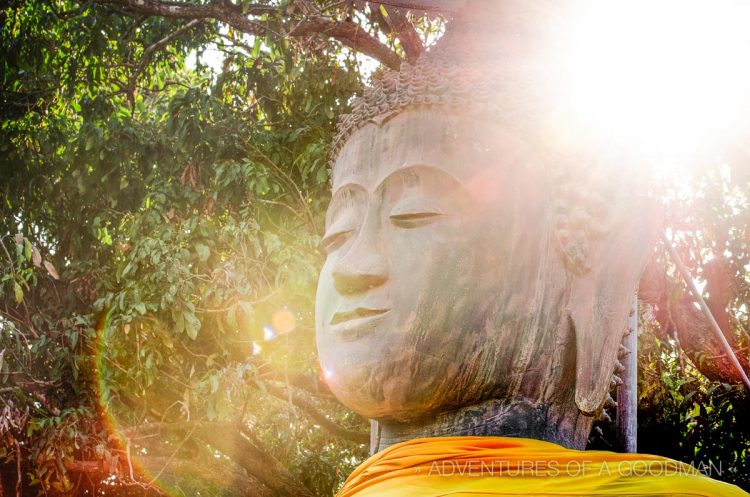
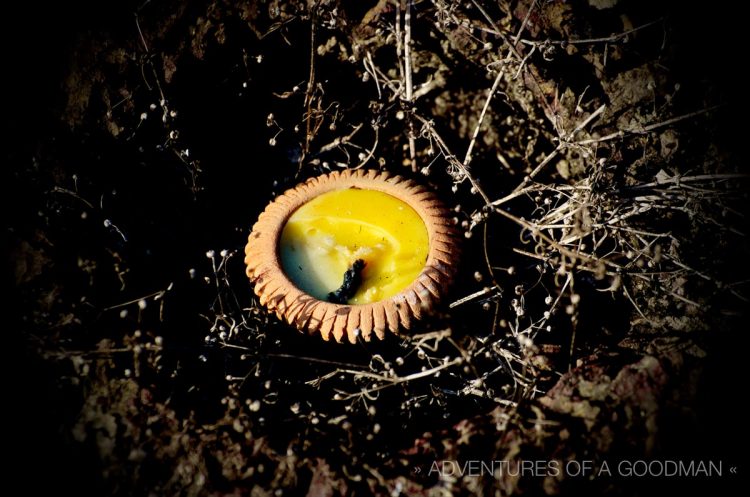
Rediscovering Wiang Kum Kam
Lanna legends were put to rest in 1984, when archaeologists found the remains of an ancient city about 7 kilometers from downtown Chiang Mai, Thailand. Extensive research and excavation proved that it was, in fact, the ancient city of Wiang Kum Kam.
Today, more than 20 archaeological sites have been partially restored around the area. The most intact are Wat Chedi Liem and Wat Chang Kam, though I personally enjoy the buildings that leave a bit more to the imagination.
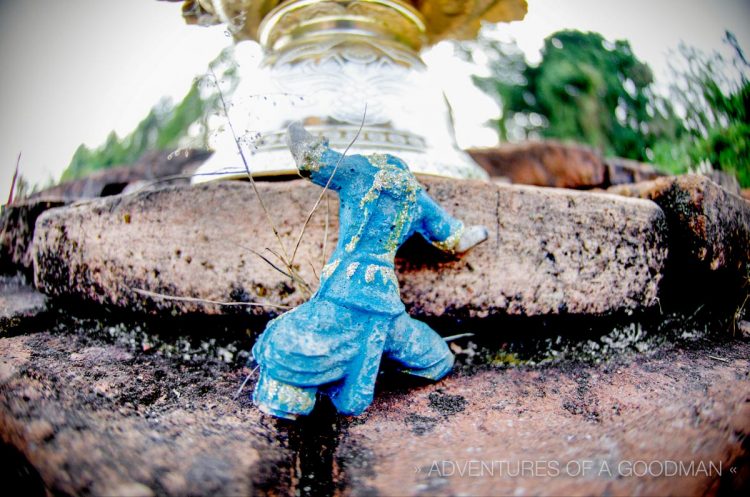
Photographing Wiang Kum Kam
A big shoutout goes to my friends in the Chiang Mai Photographic Group. It was during a CMPG field trip that I first discovered Wiang Kum Kam, as we spent an afternoon caravanning around the various archaeological sites with our cameras.
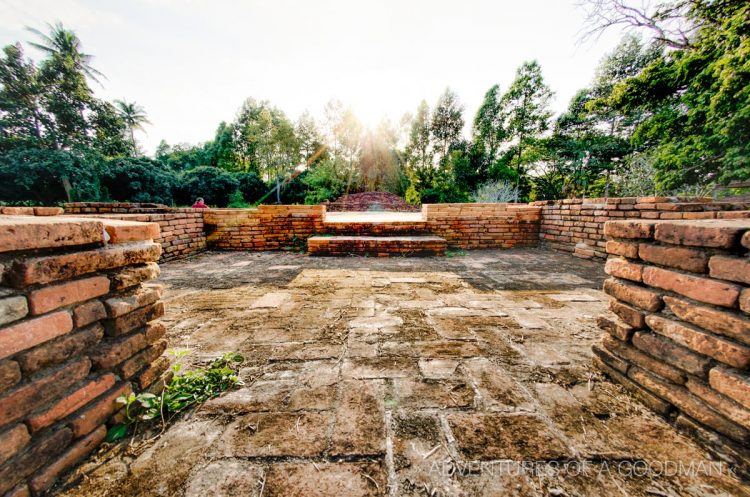
Sunset Over Wat E-Kang
Our afternoon at Wiang Kum Kam ended back at the home of Wyndham: one of the Chiang Mai Photographic Group’s organizers whose home is literally in the backyard of Wat E-Kang. We all relaxed on his patio, waited for the sunset, and walked a hundred feet to see a spectacular display of colors and light.
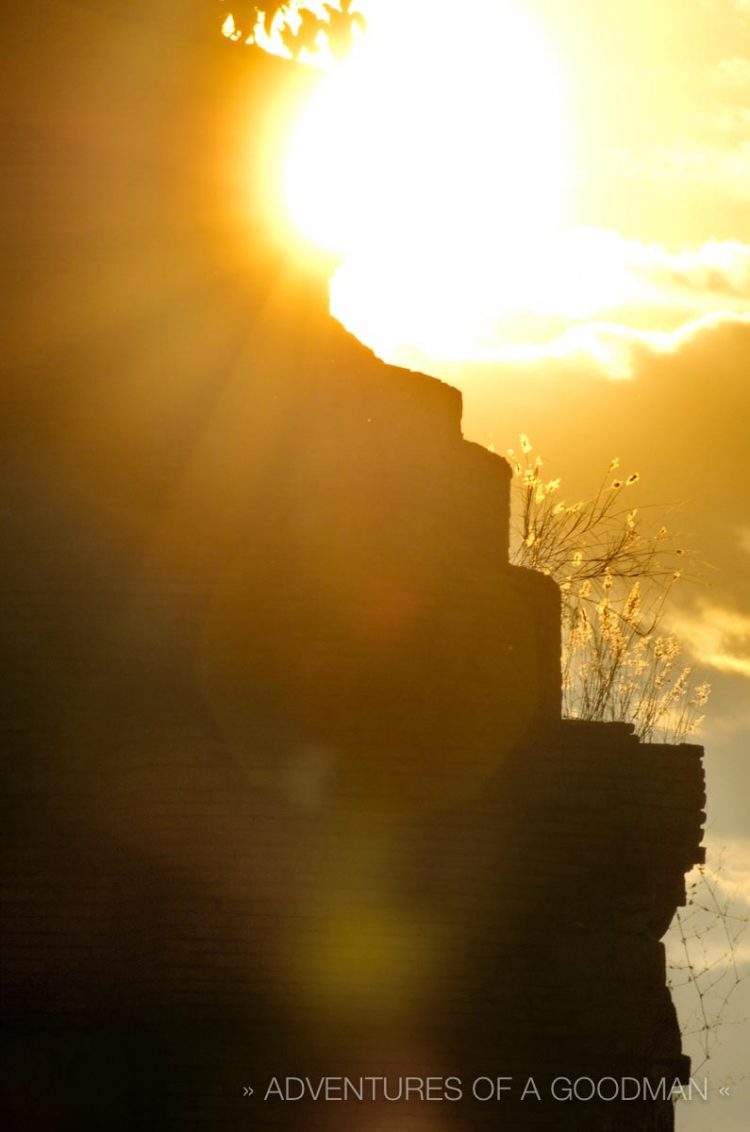
Thanks!
Special thanks to my friend Simona – an expert in Chiang Mai history – for inspiring this article and helping me with some facts. She’s also an incredibly talented artist, so be sure to check out her beautiful paintings.
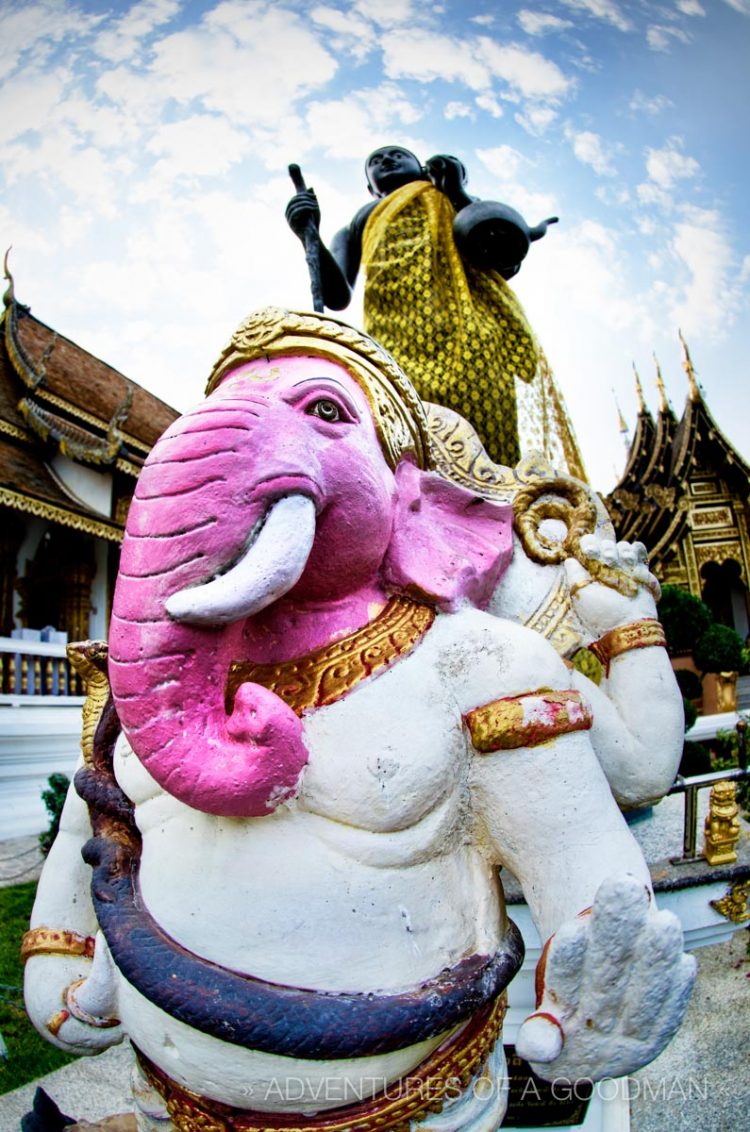
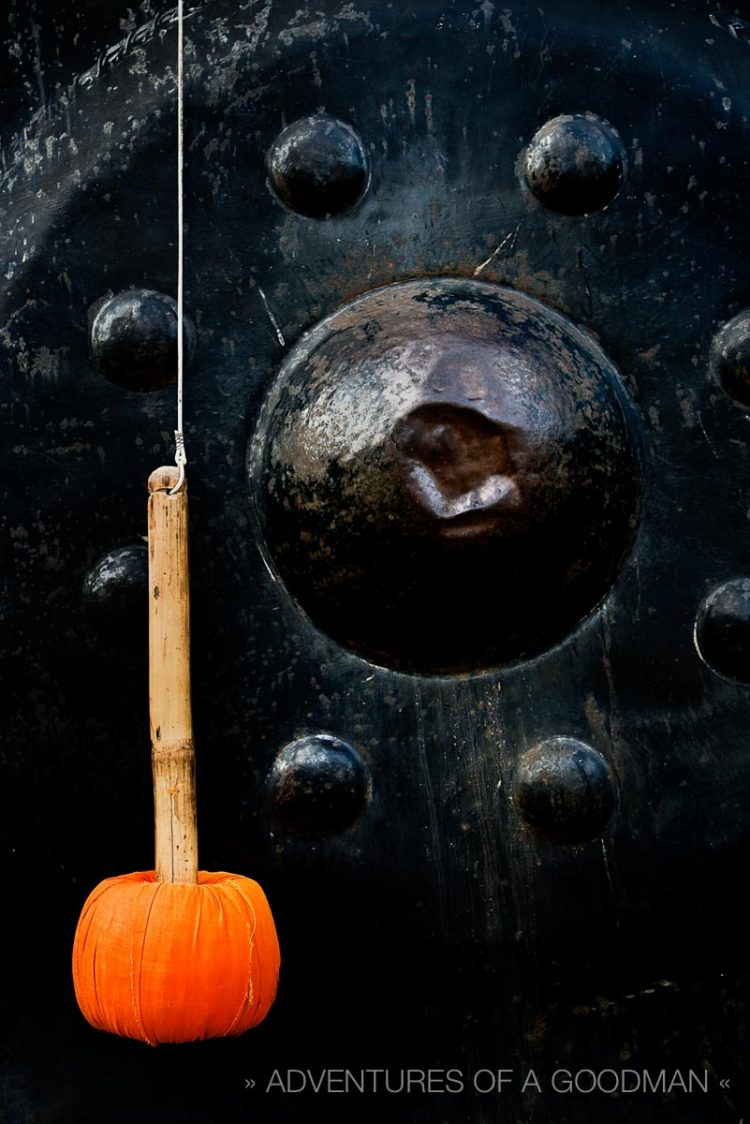
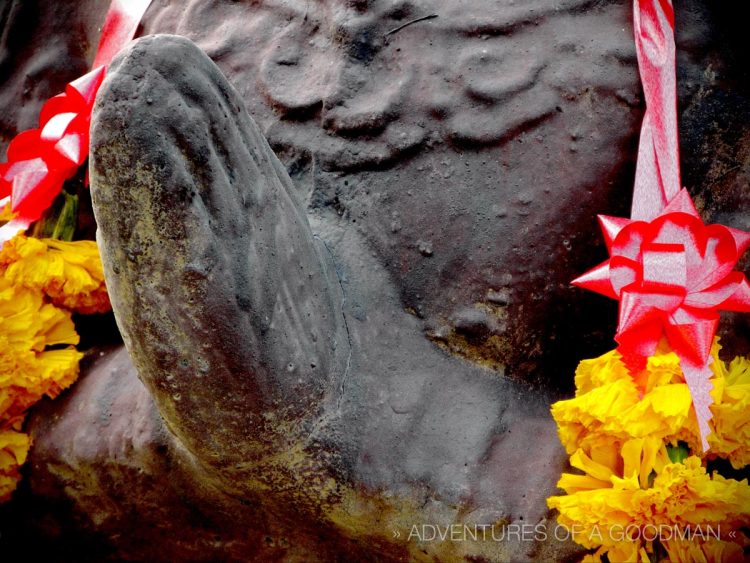
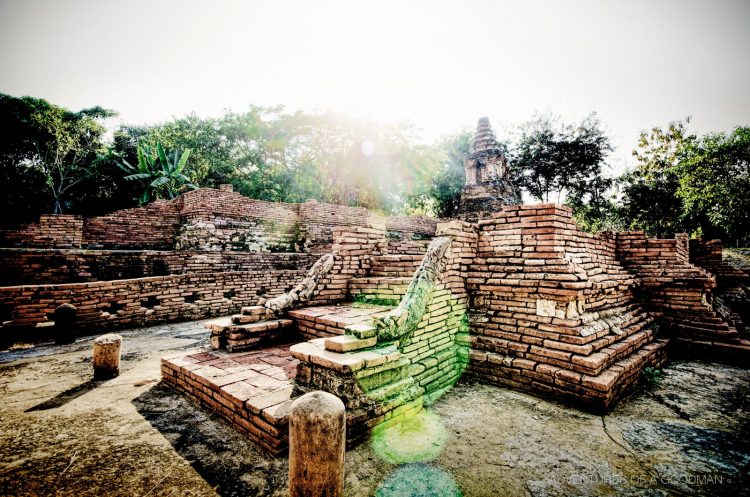
My parting advice to you is this:
If you find yourself in Chiang Mai, Thailand and enjoy exploring ancient ruins, Wiang Kum Kam is a must visit!
EXPLORE SOMEWHERE NEW
BUY A PRINT
All photos on this site are available as limited edition fine art photographic prints. Please get in touch for sizes and rates.


